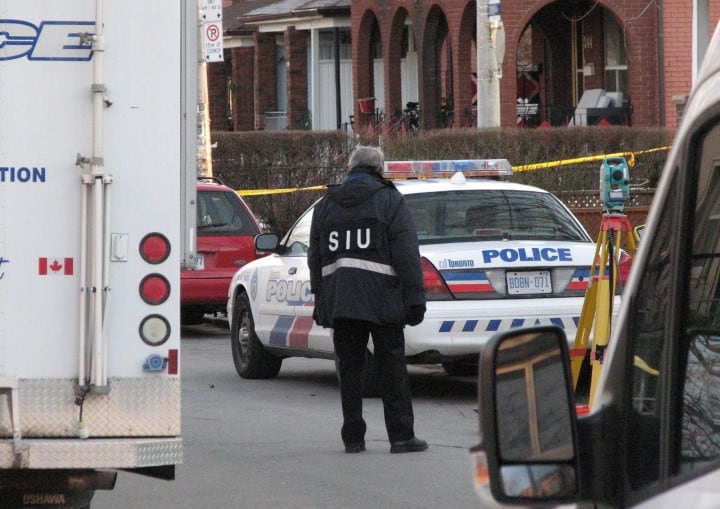Ontario’s police watchdog to collect race data, as advocates have long urged
Published June 11, 2020 at 7:29 pm

TORONTO — The agency that investigates police conduct in encounters resulting in serious injury will begin collecting race-based data later this year, it said on Thursday, but critics say the information by itself will have little effect on addressing racial inequities in policing.
Currently, the Special Investigations Unit only collects data on the age and gender of complainants. Recording new data will likely start Oct. 1, when new legislation is expected to take effect, spokeswoman Monica Hudon said.
“Collecting race-based data will help identify and monitor racial disparity in access to the SIU’s services and outcomes, identify potential barriers within our agency, and increase transparency through public reporting,” Hudon said. “By identifying and monitoring systemic racial disparities, public sector organizations will be better able to close gaps, eliminate barriers, and advance the fair treatment of everyone.”
The SIU said it would publicly report on findings related to the data. A committee, it said, was working out the details to ensure collection is done sensitively and in a way that does not personally identify individuals.
Activists said such data is helpful in providing further evidence of the perennial over-representation of Black people in police killings. However, Syrus Marcus Ware, a core member of Black Lives Matter in Toronto, said collecting the data falls far short of what’s needed.
“We are fighting now to end the targeted policing of Black communities,” Ware said. “The collection of raced-base data, however helpful, is not going to replace the thundering calls to abolish the police system and completely re-imagine how we deal with conflict, crisis and harm in our communities.”
The SIU change comes amid an international uproar over police brutality — particularly toward Black people — sparked by the recent killing of George Floyd in Minneapolis. People across Canada have denounced police violence, calling for radical reforms.
Commissions and advocates have long pushed the recording of race information in light of studies and reports showing Black and Indigenous people were disproportionately at the blunt end of law enforcement.
In November 2018, for example, the Ontario Human Rights Commission reported Toronto police were almost 20 times more likely to shoot and kill a Black person than a white person despite Black men making up little more than four per cent of the city’s population.
The information also showed that Black people were significantly over-represented in cases where police resorted to force, deadly encounters and fatal shootings.
“Black civilians are over-represented in all types of SIU investigation,” Scot Wortley, a criminology professor at the University of Toronto, said in the commission report. “Black over-representation appears to increase with case seriousness.”
The report also concluded that Black people were significantly over-represented in SIU investigations into sexual assault allegations involving police, another part of the agency’s mandate.
Only a small minority of SIU cases ever result in charges against an officer.
The SIU was founded in 1990 after the notorious police killings of Black men in Toronto. Regulation changes earlier this year allowed the agency to collect information regarding the race, ethnicity, religion and Indigenous identity of both complainants and subject officers involved in an incident under investigation.
The agency was also investigating the death of Regis Korchinsky-Paquet, 29, a Black woman who fell 24 storeys from a balcony on May 27 while Toronto police officers were in her apartment. They had responded to three “frantic” 911 calls, authorities have said.
Colin Perkel, The Canadian Press
insauga's Editorial Standards and Policies advertising





